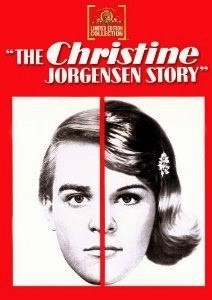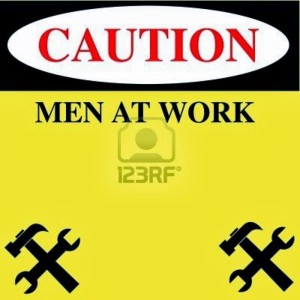By Elaine Viets
When I was growing up, men were men and he meant everyone, men and women both. Not any more, bud. Now we want gender neutral writing.
Too bad English lacks a pronoun that includes men and women both.
I believe words have power, and using he to mean both sexes disenfranchises women. I weasel around the dilemma by using they. That works, most of the time. When it doesn’t, I alternate between using he and she, giving separate but equal treatment to the sexes.
I’ve tried to sneak in their as a singular pronoun, but my publisher’s copyeditors put the kabosh on that. Copyeditors put the “cop” in editing, issuing citations for breaking the rules.
Recently, my copyeditor friend Les Weatherford addressed that issue. Most of this blog is stolen from Les.
Les doesn’t like the term sexist. That word “seems a bit harsh, a bit accusatory.” Here are Les’s thoughts on what he calls “a significant hitch in the English language.”
Consider this example: The president said success depended on everyone working as hard as ______ could.

How do you fill in that blank? “You can’t use it,” Les said. “That doesn’t refer to people. They? Grammatically incorrect. The subject of the clause is the singular.”
He proposes these options:
“Recast the sentence to make the clause plural: The president said success depended on everyone working as hard as they could. But the emphasis shifts from the individual to the group, which may not be the president’s intent.
“Use two pronouns: The president said success depended on everyone working as hard as he or she could. That reads fine in a single sentence, but becomes cumbersome when repeated over long passages.
“Follow the rule that many of us were taught in grade school: He equals he or she: The president said success depended on everyone working as hard as he could. Problem: Sexist.” Er, not gender-neutral.
“Be creative: The president said success depended on everyone working as hard as s/he could. Problem: It’s ugly. Says one writer: ‘That’s just god-awful. It might even imply some sort of gender-reassignment surgery has occurred.’

“Rules were made to be broken. Go with the flow: The president said success depended on everyone working as hard as they could. Problem: singular subject, plural pronoun. Purists will beat you to a pulp.
“Persuade the academic authorities to come up with a neuter pronoun. Here is the sentence as it would be written with a pronoun set proposed in 1975 by Christine Elverson: The president said success depended on everyone working as hard as ey could.” Yeah, ey and eir. Look like typos, don’t they?
“Problem: Elverson proposed ey nearly four decades ago. When was the last time you used it in a sentence?” Never!
Les popped the question to writers and editors. He read their responses and came to this conclusion:
“The storytellers like their. Most formal writers prefer he or she or she or he but acknowledge that their probably is going to win and that they can live with that. The universal he hangs on with one vote. Nobody suggested creating a set of neuter pronouns.”
Les believes “their and they eventually will win. Only the people who say ‘It is I’ will stick to the universal he, and they are dying off day by day.”
Thank you for your research, Les. You’ve proved Les is more.
TMZ readers and writers, where are you on this issue?



Personally, I am firmly in “Camp They,” however, when an editor kills it, I am not offended by “he.” I had one editor go through a piece and purposely change the pronouns so they alternated he and she by paragraphs. It read so forced politically correct that I had to laugh. So, I am holding out for a day when pronouns are free to do their work without having their motives challenged. #they
Like you, Terri, I’m with “they” — unless I get caught.
Elaine, I think it’s important to tell the story in the language of the reader. Nothing in a sentence should stop the reader’s eye or cause a pause. I favor “they”.
Another vote for us. Er, they.
Ditto what Joe said. Too stilted and formal might be grammatically correct, but real humans don’t speak that way…more or Les.
What a great topic! I hope Jodie chimes in on this one, and I expect she will.
Reluctantly, I have to agree that “they” seems the most logical compromise. As you pointed out, Elaine, it seems the most neutral and less cumbersome of all the options. This option also reflects speech habits, which is why I believe it’s comfortable for readers, albeit it grammatically incorrect.
However, I’m sure you can appreciate how the grammatical offense affects us copy editors (yes, it makes us twitch). When I edit a manuscript, I try to make it as grammatically correct as possible, but it’s also important to preserve the writer’s voice and keep the experience natural for readers.
It’s a challenge, but one I’m sure we can all work through together. 🙂
As a former proofreader, Diane, I’ve felt that twitch. Don’t get me started on it’s and its. “they” is the logical solution but English isn’t very logical.
…as hard as possible. You see, contrary to what bad writing classes tell you, adjectives do have a place in language. That’s why mankind invented them and has them in (afaik) every single language across the planet 😉
But rejoice: Contrary to my native German, at least your language uses the same word for, say, male and female presidents.
I never did get the nouns with gender part of other languages. How can a chair be feminine?
What’s wrong with alternating “he” and “she”? You mention it, Elaine, but then you don’t come back to it.
I agree with Joe that writing in the language of the reader is important. But in my experience, readers will stumble over “they” in place of a singular pronoun – maybe not in speech, but in text. So to me, using “they” is not using the language of the reader. Kind of like the rule that dialogue is not real in the sense that people don’t take turns talking, etc. Choosing pronouns is not real either in the sense that people say “they” all the time in a singular sense but don’t write it that way.
To me, the consistent alternation between “he” and “she” gets me wondering if there is a political agenda with the piece I’m reading and I can get so distracted that I miss the point or quit reading. Not the effect I want.
I don’t mind the consistent “he” for human but I’m not part of the gender war generation (or if I am I missed the meeting announcements).
I am a copyeditor/proofer but would still embrace “they.” It hurts my obsessive little brain, but I can get used to it. Humans change fastest in the presence of pain.
Alternating “he” and “she” works, but not for long sections, Vincent. Then it gives your writing an odd metronome affect (effect?). There’s never a copyeditor when you need one.
Well, yeah, not every sentence! That’s crazy talk. 🙂 I usually alternate by parts of a book (beginning, middle, end) or by some other suitably large chunk. Sorry if that wasn’t clear. The issue doesn’t come up too much in fiction, at least for me. So honestly it might happen once in the beginning, twice in the middle, and once in the end, and I’ll use he in the beginning, she in the middle, and he in the end.
Anne, I think this avoids suggestions of a political agenda. Although, I suppose, if someone sees a political agenda in even once using ‘she’ as an inclusive pronoun, then yeah, there’s a political agenda there.
I’m a stickler for precision in language (it’s the ex copy editor in me, I guess) and I tend to fight the good fight for the dilution I see in writing. I once got into a really heated argument on Facebook with another writer who was adamant that there was no difference between fiancee and fiance (sorry…can’t get the accent marks in there!) But I also don’t like the Frankenstein phrases we get ourselves into in the interest of copy PC. My instincts always make me type “they” but I hate myself in the morning. My sad solution is to try to write around the issue whenever I can. And my default pronoun is “she” just because I, as writer, am god.
Or is that “goddess?”
It’s God, a being who has no gender.
I think we’re in the transitional stages now, heading toward a universal “they,” but not quite ready to use it full time.
No offense to copy editors–a good friend is a copy editor–but grammar exists to serve writing by providing clarity; not the other way round. “They” is becoming accepted through common usage, and we write fiction; that’s our guidepost.
As Raymond Chandler once said on the topic:
By the way, would you convey my compliments to the purist who reads your proofs and tell him or her that I write in a sort of broken-down patois which is something like the way a Swiss waiter talks, and that when I split an infinitive, God damn it, I split it so it will stay split, and when I interrupt the velvety smoothness of my more or less literate syntax with a few sudden words of barroom vernacular, this is done with the eyes wide open and the mind relaxed but attentive. The method may not be perfect, but it is all I have. I think your proofreader is kindly attempting to steady me on my feet, but much as I appreciate the solicitude, I am really able to steer a fairly clear course, provided I get both sidewalks and the street between.
Here, here, Dana!
I live in Sweden and here, recently, we seem to have gotten this new gender neutral word by accident, sort of, because it’s certainly not a part of our language. So instead of han (he) or hon (she) people are now starting to use the word… Hen! Which is absolutely insane, both because it sounds awfully ugly and it reminds us of the english word, which makes it ridiculous. I think if we have made it for thousands of years without that kind of word, why do we suddenly need it now? He can be a masculine word, yes, but it can also be used for humans in general, and I think people need to remind themselves of that and stop being silly.
Katarina, this reminds me a little of our big debate when Ms first entered the American lexicon. (Yeah, I’m THAT old that I remember this battle). You’d think the world was going to end because women had the nerve to say that they didn’t want their marital status pinned to their names. (ironically, the term had been around for centuries). Even William Safire eventually came around but it was ugly there for a while. But “hen”? Don’t know if I’d want to be a hen. Then again, I get bristly when folks call me “hon.” Except old diner waitresses…they can get away with it.
I agree that a made up word like “hen” or “s/he” is silly, Katerina. But I feel that “he” does not represent all humans. It’s especially dangerous when writing about male-dominated professions, such as the military, where women have been excluded for many years. It only enforces the stereotype that these professions are for men only.
The president said citizens, the president said Americans, the president said people, etc. What’s the problem?
Sometimes you need a pronoun, Barry. That’s the problem.
After using a plural noun, you’re free to use the plural subject pronoun “they” or the plural object pronoun “them.” You no longer have to worry about being called sexist or punctuationally challenged.
Don’t Canadians say “ey” all the time? Or am I wrong?
Now say “am I wrong” real fast. Try saying it with a Scottish accent and it comes out sounding like “meringue ” — like in lemon meringue pie.
What’s this have to do with the subject at hand? Absolutely nothing. I could be channeling Basil here!!
Eh? Yaer tekkin boot such wha’ah ken Jim! Boo ah c’nae ken yer paent wit allit yer sayin’. Boo ae’ll trae, trae haerd, aye.
Gudonya.
Ey, Jim, Canadians say “ey” a lot. Here in Florida we have more Canadians than Toronto does in the winter. But the Canuks don’t use ey as a pronoun.
The problem is the partial Latin/Germanic base of English which genderizes objects as well as people. In Korean they don’t have that. For instance if you want to talk about somebody (singular) without indicating their gender you simply say Keu Saram which roughly translates to a singular form of they, or that person without giving any specific identifiers.
For me in English ‘they’ works fine. Of course as anyone who’s read my comments precise and correct grammar is not particularly important to me when there may be funner ways to describe things.
In Marine boot camp, the Drill Instructors were fond of using all kinds of colorfully non-gender-specific descriptors for recruits usually involving being the supposedly impossible progeny created by mating between sheep and inanimate objects.
One could weasel oput of it even further and say: “as hard as one could.”
You’re right, at times English sucketh the big one.
One could, Roger, if one were so inclined.
The Korean solution sounds sensible, Basil, and the drill instructors er, creative.
Les dug up this quote about English from a journalism prof, John Brenner, “Our beautiful bastard language, bred from so many other languages, ancient and modern.”
Used to eat Sunday dinner at a Marine mess in Chu Lai. I was Army and subsequently oblivious to Marine-isms, such as the ubiquitous “cover.” So I’d intentionally forget my cap (or hat) when attending Sunday dinner a la Marines. While awaiting my plate of shrimp salad and grilled steak [now you understand why I ate there??], Gunny would always catch me.
“Ah-haarrrrr!” he’d scream. “Whaaarrrs yer foookin’ covaahh, sonny?”
I’d pretend I didn’t know what he was talking about. “Cover??” you ask. Heck’s he talkin’ about? And be all, “Huh? My whaaat, you say?”
And the poor guy would turn red and become apoplectic over this affront. So he and everyone else in the chow line would know I was Army and hadn’t been issued the Book of Marine-isms.
Eventually, I would cave in, retrieve my “cover” and be allowed to eat. I’d pull this routine every Sunday, and Gunny never caught on that I was the same guy every week.
Jarheads. What can you expect? My family’s Navy.
Another vote for “they” here – it seems to be gaining the most ground as a gender-neutral form, everyone knows what you mean when you use it, and the style guide for the media outlet I temp with now uses it for that purpose. I think that progression is more natural than trying to manufacture a new gender-neutral word.
I find alternating he and she – especially going back and forth between the two in the one document – just confusing. Pronouns flopping back and forth like fish on a line just look like editing mistakes, to me. 🙂
I think you missed Barry Knister’s point. If you rewrite the sentence substituting “people” or “Americans” for “everyone”, then the “they” in the next clause is perfectly grammatical. (I think this is what you meant to write as option #1, by the way; otherwise, your option #1 and option #5 are identical.)
By the way, the rule that “everyone” should be followed by “he” or “she” and not “they” is only 150 years old. Jane Austen used everyone/they.
See
http://www.nytimes.com/2009/07/26/magazine/26FOB-onlanguage-t.html?_r=0
My comment is rather more general (implied above in some comments above): We take PC (political correctness) far too seriously! And if anyone thinks he or she usage is sexist, what’s wrong with the old one? I’ll answer that: it might sound like Jane Austen!
I got tired of writing an extended answer, and bookmarked this awesome link on why the singular they is both grammatically correct and older than most people think:
http://motivatedgrammar.wordpress.com/2009/09/10/singular-they-and-the-many-reasons-why-its-correct/
I can’t stand singular antecedents for plural pronouns. I would rather use he or she alone. I vary which one I choose while I write.